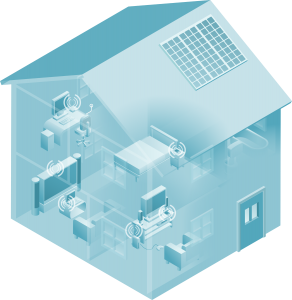Mesh Routers: Changing The Airwaves
Mesh networks have been used for quite a few years in places like hospitals, military bases, factories, and large office buildings. Now, mesh router technology is being applied to consumer Wi-Fi.
If you have a large home or property reaching 3,000 to 4,000 feet, then you might want to take a look at one of the many mesh network options available to you.
No More Suffering From Dropped Wi-Fi
Instead of having your Wi-Fi signal degrade after it penetrates concrete or brick, you could have a strong, reliable signal anywhere. As if you were sitting right next to your router, even. For some of us, that seems unbelievable. Mesh networks can make that possible.
Before mesh routers, you would have to use range extenders, which would use different SSID and credentials. With a mesh network, you can utilize the same credentials all across your property.
Along with easy management, some residential mesh router kits come with good security support. Thanks to the aforementioned easy network management, it’s not hard to keep your router devices safe. Many not only automatically check for firmware updates, but also install the updates as well.
Additionally, if you work at home, mesh networks can help considerably with stability and give you freedom to move around your home. Rather than staying stuck in one spot that you know has strong signal, you can have flexibility.
Should You Consider A Mesh Network?
If you’re in a small house or apartment and only have dropped Wi-Fi every so often, then probably not. A simple range extender or a more powerful router would suffice.
If you’re tired of constant router resets or antenna adjustments, now is a good time to upgrade to whichever product best fits your situation and budget.
You may need a new traditional router with longer distance capabilities, a mesh router kit/mesh network, or a range extender. All are optimized to deal with home obstructions and can connect homes on numerous frequencies. However, your personal situation will determine which way to go.
Consider your property size, the age of your existing router, and current network performance before making a decision.
(Image source: iCLIPART)


